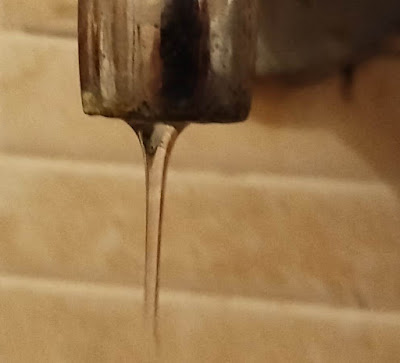Water may become costlier than Petrol in the near future?
In a world where the unpredictable has become the norm, discussions about resource scarcity, environmental sustainability, and geopolitical unrest frequently dominate headlines. A curious shift, however, is emerging in the economics of natural resources. As solar energy gains traction and geopolitical strife continues to impact oil prices, a surprising forecast is taking shape: the possibility that water might become more expensive than petrol in the near future.
The Rise of Solar Energy
The transition towards solar energy is rapidly altering the global energy landscape. Costs associated with solar power have plummeted over the last decade, making it an increasingly viable alternative to fossil fuels. According to the International Renewable Energy Agency (IRENA), the price of solar photovoltaics (PV) has dropped by 82% since 2010. This seismic shift is reducing dependency on oil, especially in sun-rich regions that are capitalizing on their geographic advantage to harness solar energy.
The widespread adoption of solar power is instrumental in diminishing the demand for petrol and other fossil fuels, thus contributing to a decrease in their prices. Major oil-producing countries are feeling the pressure as the shift towards renewables gathers pace, influencing global oil markets and pricing strategies.
Water Scarcity: A Looming Crisis
Concurrently, another crisis is deepening—one that might not be as easily solvable with technological innovation alone: the global water crisis. The United Nations World Water Development Report highlights that over two billion people currently live in countries plagued by water stress. Factors such as climate change, population growth, and urbanization are exacerbating this stress, making water an increasingly scarce commodity.
Unlike oil, water is indispensable in its most fundamental uses—drinking, cooking, and basic hygiene. Its scarcity, therefore, poses a far more existential threat than the depletion of fossil fuels. Moreover, water is notoriously difficult to manage and regulate because it is bound by complex international laws, local regulations, and natural boundaries.
Environmental Considerations and the Cost of Water
Environmental degradation further complicates the water scarcity issue. Pollution from industrial activities, agricultural runoff, and improper waste disposal are contaminating freshwater sources faster than they can be replenished. Cleaning and conserving water involves substantial investment in infrastructure such as desalination plants, recycling systems, and waste treatment facilities. These technologies are not only costly but also energy-intensive, adding to the overall expense of providing clean water.
As the world grapples with the imperative of environmental conservation, the economic burden of managing water resources is expected to climb. This will inevitably be reflected in the cost to the end consumer, potentially making water a more expensive resource than petrol.
The Geopolitical Dimension
The Middle East, a region synonymous with both oil production and arid landscapes, serves as a stark example of how geopolitics influences resource scarcity. Frequent conflicts and political instability disrupt both oil production and water supply, causing price volatility that has global repercussions. The Syrian crisis, for example, has highlighted how access to water can become a critical flashpoint, further complicating regional politics and international relations.
Countries that depend heavily on rivers that flow from politically unstable regions are particularly vulnerable. For instance, tensions frequently arise around the usage of water from the Nile, Tigris, and Euphrates rivers, which traverse several national boundaries. The interdependence of nations on shared water resources can lead to diplomatic conflicts that further restrict access to water, pushing prices upward.
The Future: Water More Precious Than Oil?
As the dynamics of global energy shift towards renewables like solar power, and as water scarcity is exacerbated by environmental and geopolitical factors, the economic landscapes of these vital resources are set to evolve. The once unthinkable idea that water could be more expensive than petrol is becoming increasingly plausible. Such a scenario would have profound implications for everything from geopolitics to daily living standards.
In conclusion, while the ascendancy of solar energy heralds a new era of cleaner power, it also indirectly contributes to making water an even more valuable and potentially expensive resource. This possible future underscores the urgent need for sustainable water management practices that encompass conservation, technology, and international cooperation to ensure that water, unlike oil, does not become a catalyst for conflict but a fundamental right preserved for all.



.jpeg)